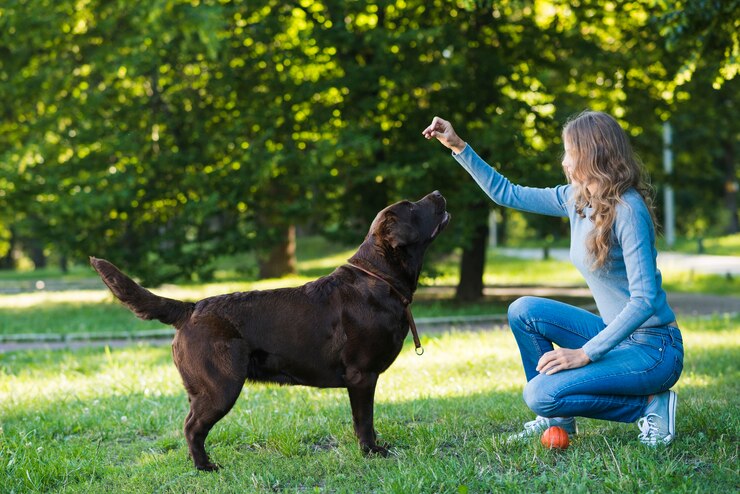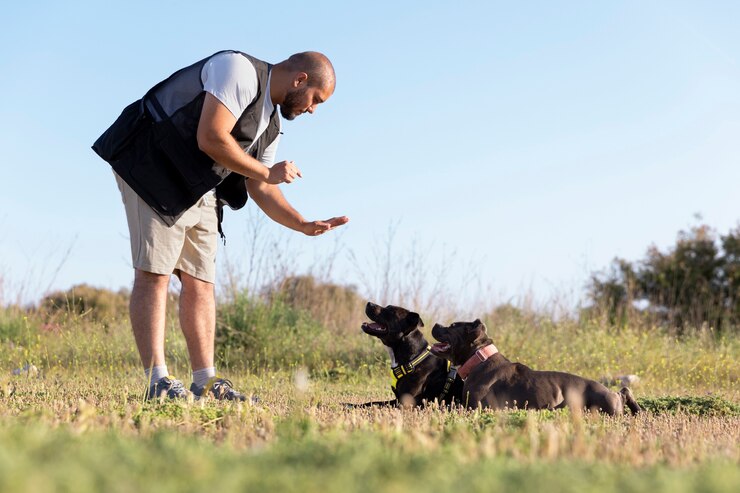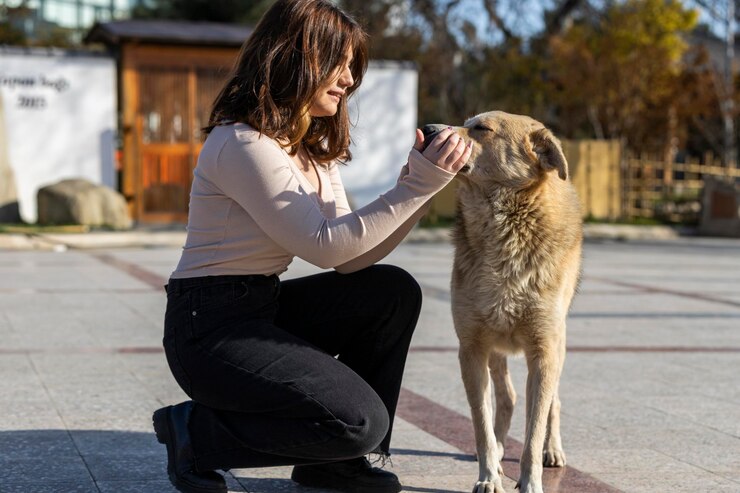
Understanding the Distinction: Dog Trainer vs. Behaviorist
As pet owners seek to provide the best care for their furry companions, they often encounter the terms “dog trainer” and “behaviorist.” While these professionals share a common goal of enhancing a dog’s well-being, there are crucial differences in their approaches, methodologies, and areas of expertise. In this blog post, we’ll delve into the distinctions between a dog trainer and a behaviorist, shedding light on the unique roles each plays in the world of canine care.
Focus and Goals
Dog Trainer:
Dog trainers primarily concentrate on teaching obedience commands and refining a dog’s behavior through positive reinforcement, repetition, and consistent training methods. Their focus is often on improving basic manners, addressing specific commands, and enhancing the bond between the dog and its owner.
Behaviorist:
On the other hand, a behaviorist specializes in understanding and modifying a dog’s overall behavior. They delve into the root causes of behavioral issues, addressing problems like anxiety, fear, aggression, or compulsive behaviors. Behaviorists aim to identify and modify underlying emotional and psychological factors influencing a dog’s actions.
Training Techniques
Dog Trainer:
Trainers commonly employ positive reinforcement techniques, rewarding desired behaviors with treats, praise, or toys. They use repetition and consistency to teach commands and encourage good manners. Training sessions are structured and goal-oriented, focusing on specific tasks or behaviors.
Behaviorist:
Behaviorists often utilize a more holistic approach, combining behavioral modification techniques with a deep understanding of canine psychology. They may incorporate desensitization, counterconditioning, and other methods to address underlying emotional issues contributing to problematic behavior.


Education and Certification:
Dog Trainer:
While there are various courses and certifications available for dog trainers, the requirements can vary. Some trainers may undergo formal education, while others gain practical experience through apprenticeships. Certifications such as the CPDT-KA (Certified Professional Dog Trainer – Knowledge Assessed) are common in the field.
Behaviorist:
Behaviorists typically possess advanced degrees in fields such as animal behavior, psychology, or veterinary medicine. Many behaviorists are certified by professional organizations, such as the International Association of Canine Professionals (IACP) or the International Association of Applied Behavior Consultants (IAABC).
Scope of Work
Dog Trainer:
Trainers primarily work on specific behaviors, commands, and obedience training. They may address common issues like jumping, pulling on the leash, or basic commands like sit and stay.
Behaviorist:
Behaviorists handle more complex issues, including severe behavioral problems like aggression, phobias, and separation anxiety. They assess the dog’s overall well-being, considering emotional and psychological factors that may contribute to problematic behavior.



Conclusion
In summary, both dog trainers and behaviorists contribute significantly to the welfare of our canine companions, albeit with different focuses and approaches. While trainers excel in teaching obedience and refining manners, behaviorists specialize in understanding and modifying deeper behavioral issues. Depending on a dog’s needs, pet owners may find the expertise of both professionals beneficial for a well-rounded approach to their furry friend’s behavioral development.
About the Author:
Savanna Westwood
Savanna Westwood is the Owner and Founder of The Savvy Sitter, Pet Sitting and Dog Walking, LLC. She has grown up with animals all her life and enjoys spending time with them. Savanna has lived in the Winter Garden and Windermere Area for over 30 years. When she is not taking care of Fur Friends, one can find her reading, practicing archery, riding, and devising ways to provide additional and excellent services to clients. Savanna is a Certified Professional Pet Sitter with Pet Sitter International's CPPS certification and also holds certification in Pet First Aid and CPCR for Pet-Care Professionals.

